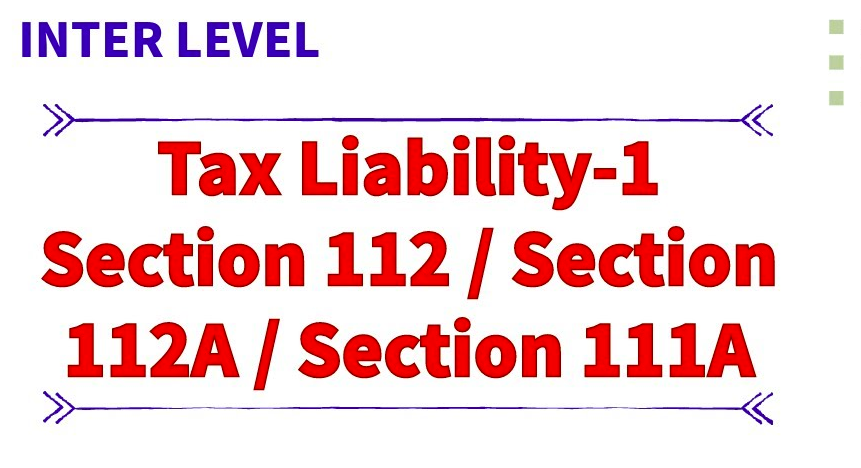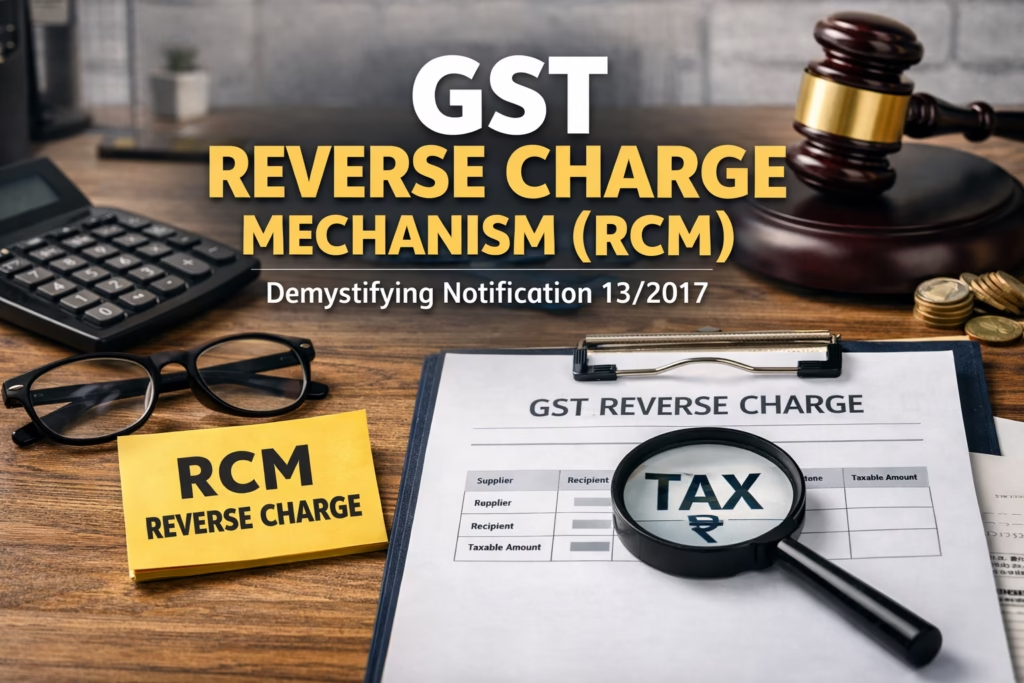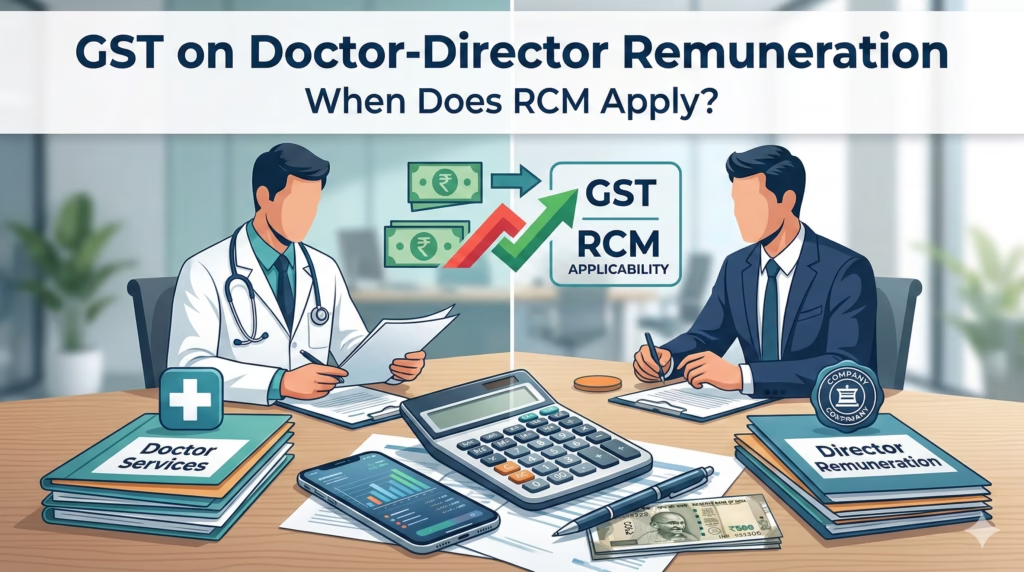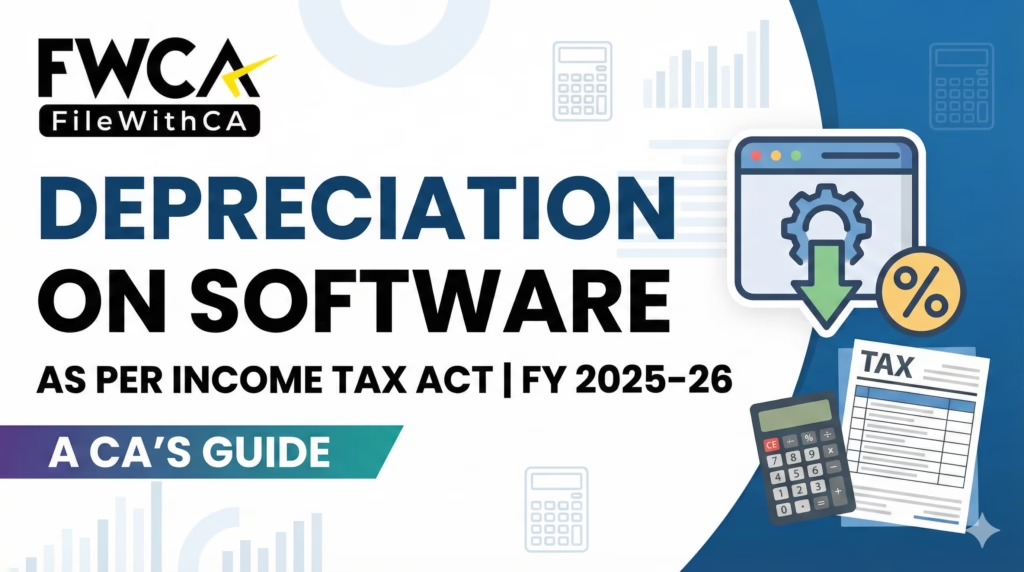Understanding Sections 111A, 112A & 112 of the Income Tax Act: Provisions and Implications

Taxation may be rocket science with its jargons and labyrinthine clauses. Yet, a proper understanding of critical sections of the Income Tax Act can make all the difference in strategizing your tax planning. We will discuss three important sections of the Indian Income Tax Act, namely, Section 111A, Section 112A, and Section 112- dealing with capital gains taxation. These sections are significant for all investors who are dealing in stocks, mutual funds, and all other forms of capital assets. So we break down their provisions and draw out all the latest updates so that they will be easy to understand and apply.
Section 111A: Short-Term Capital Gains on Securities
Contents
- General Overview of Section 111A
Section 111A of the Income Tax Act details short-term capital gains arising from the sale of equity shares or equity-oriented mutual funds listed on a recognized stock exchange, wherein the sale attracts Securities Transaction Tax (STT). This section clearly states gains arising when investors sell their equity assets within a short period, usually within one year. - Short-Term Capital Gains (STCG) Tax Rate
Whatever forms of capital gains are so tagged and termed as short-term, Section 111A attracts them at the concessional rate of 15%. The tax in that event will be applicable without referring to the personal income tax slab. Nevertheless, cess and surcharge apply according to the income level of a taxpayer.
For instance, suppose you sold equity shares or mutual funds on the sale of which more than 12 months have elapsed after the date of their acquisition and your total income comes to ₹1,00,000. In that case, you will incur an amount of tax at 15%. That is, ₹15,000 + cess and surcharge.
- Conditions for Applicability
The capital asset should be either equity shares or equity-oriented mutual funds.
The transfer should be made on a recognized stock exchange.
STT needs to be paid on such transactions.
The holding period of short-term capital gain is less than 12 months. - Allowances and Deductions
No deduction under Chapter VI-A, such as deduction under Section 80C, 80D, etc can be claimed to arrive at the tax liability on the short-term capital gains, as per Section 111A. - Latest Updates in Section 111A
As per the latest news, it is clarified that in the case of equity shares and equity-oriented mutual funds, STT must be paid at the time of both purchase as well as sale to benefit from the concessional tax rate under Section 111A. This is to avoid lacunas wherein the taxpayers would avoid STT during acquisition.
- Introduction to Section 112A
Section 112A was introduced in Budget 2018, thus taxing long-term capital gains arising from sale in equity shares or equity-oriented mutual funds that were, hitherto, tax-free under Section 10(38). The same has now been applied to capital assets held for more than 12 months. - Long-Term Capital Gains Tax Rate (LTCG)
Under Section 112A, in the case of long-term capital gains over ₹1,00,000, a flat tax of 10 percent is levied without indexation. All such capital gains up to ₹1,00,000 in a financial year are exempt from tax. For instance, if you have long-term capital gains of ₹1,50,000, only ₹50,000 would be taxed at 10 percent. - Applicability:
It should be equity shares or equity-oriented mutual funds listed on a recognized stock exchange.
Gains should arise from assets held more than 12 months
The sale must attract Securities Transaction Tax(STT). - Grandfathering Clause
Grandfathering has also been offered to soften the blow of this tax on long-term investors. All gains up to January 31, 2018, are exempted from LTCG tax. Gains from equity shares or mutual fund investments made before that date but sold after will attract tax only on the appreciation in value after January 31, 2018. - Latest Updates in Section 112A
Minor clarifications about the treatment of listed vs. unlisted shares under the Finance Act 2023 have also been made. There is no application of concessional LTCG tax rate for unlisted shares. Also, an emphasis has been shown regarding the payment of STT at the time of both purchase and sale in the manner of Section 111A so that no tax evasion could take place.
Section 112: Other Assets: Long-Term Capital Gains
- Section 112 -Background
Section 112 deals with the taxation of long-term capital gains on assets other than equity shares or mutual funds, and this would include real estate, bonds, and debt mutual funds. The taxation of long-term capital gains, as governed by section 112, is quite different from that of equity-related gains. - Long-Term Capital Gains Tax Rate
In respect of assets covered under section 112, the tax rate on long-term capital gains is:
20% with indexation benefit: The acquisition cost of an asset is adjusted for inflation, which decreases the tax liability.
10% without indexation: This is applied in specific cases only, if the taxpayer does not claim the indexation benefit (it is offered mainly in respect of listed securities, bonds, and debentures).
For example, if you sell a property after more than 2 years, your profit is taxed at 20%, but indexation will reduce the tax burden due to inflationary gains.
- Benefit of Indexation
The key characteristic of Section 112 is an indexation benefit. This facilitates the taxpayer’s ability to inflation-index the cost of the asset at the time of purchase using the Cost Inflation Index (CII). This has a substantial effect on the reduction of capital gains and subsequently the tax liability. The indexation benefit, however, applies only to real estate, debt funds, gold, and other capital assets. - Exemptions Under Section 112
Some reliefs under sections 54, 54F, and 54EC are given to mitigate long-term capital gain tax liability:-
Section 54 – Exemptions on capital gains by sale of residential property, provided its proceeds are invested in another residence.
Section 54F – Exemption on capital gains by any long-term capital asset other than a residential house, provided the sale proceeds are sunk in the purchase of another residential house.
Section 54EC: Exemption for gains arising from the sale of any asset with investment proceeds in the specified bonds.
- New Trends in Section 112
It has been quoted that debt mutual funds will no longer get indexation for investments made post-April 1, 2023. This is a big shift, and now when it comes to tax-friendliness, non-equity funds are less tax-friendly compared to equity funds.
Conclusion
The three separate sections, namely 111A, 112A, and 112, make all the aspects of capital gains tax. These rules differ for short-term gains and long-term gains. Section 111A allows relief on short-term equity gains, 112A levies a moderate rate on equity gains that are long-term, and 112 provides relief on long-term gains from any other form of assets after indexation.
The savings in tax planning arise predominantly around these sections if you know how to optimize your investments for short and long-term gains. Always keep updated with the latest changes in tax laws and make sure you are using everything available.







Leave a Reply